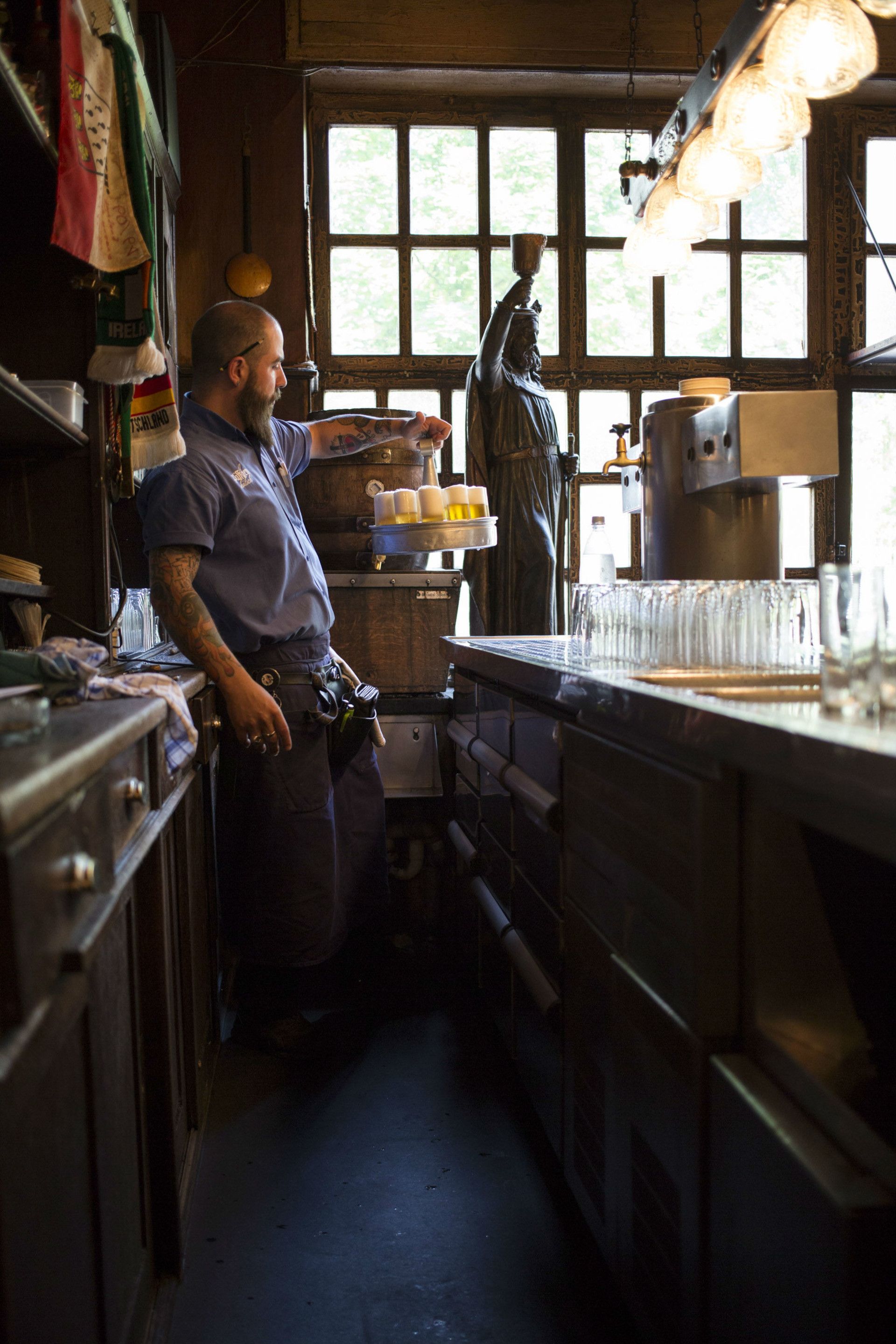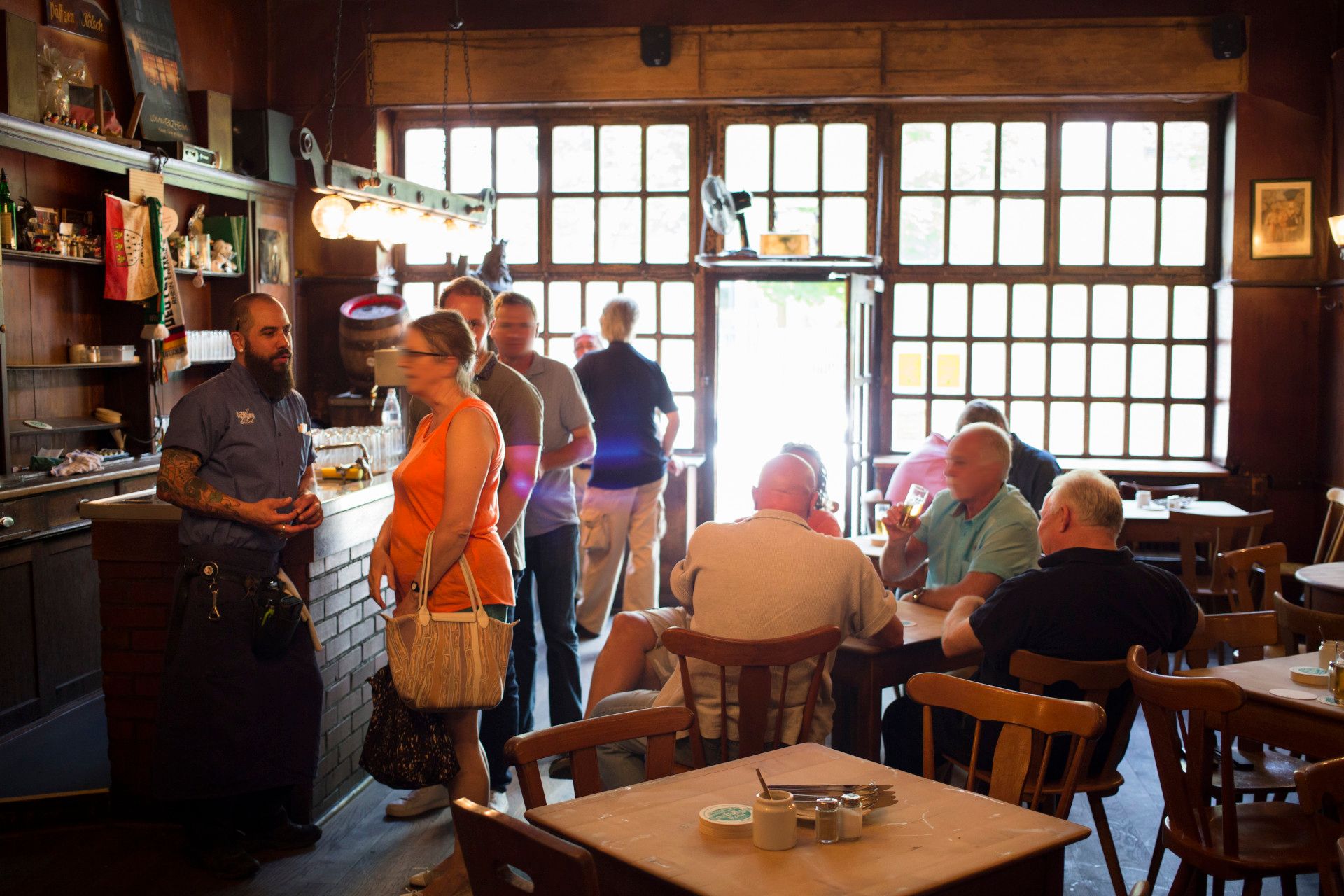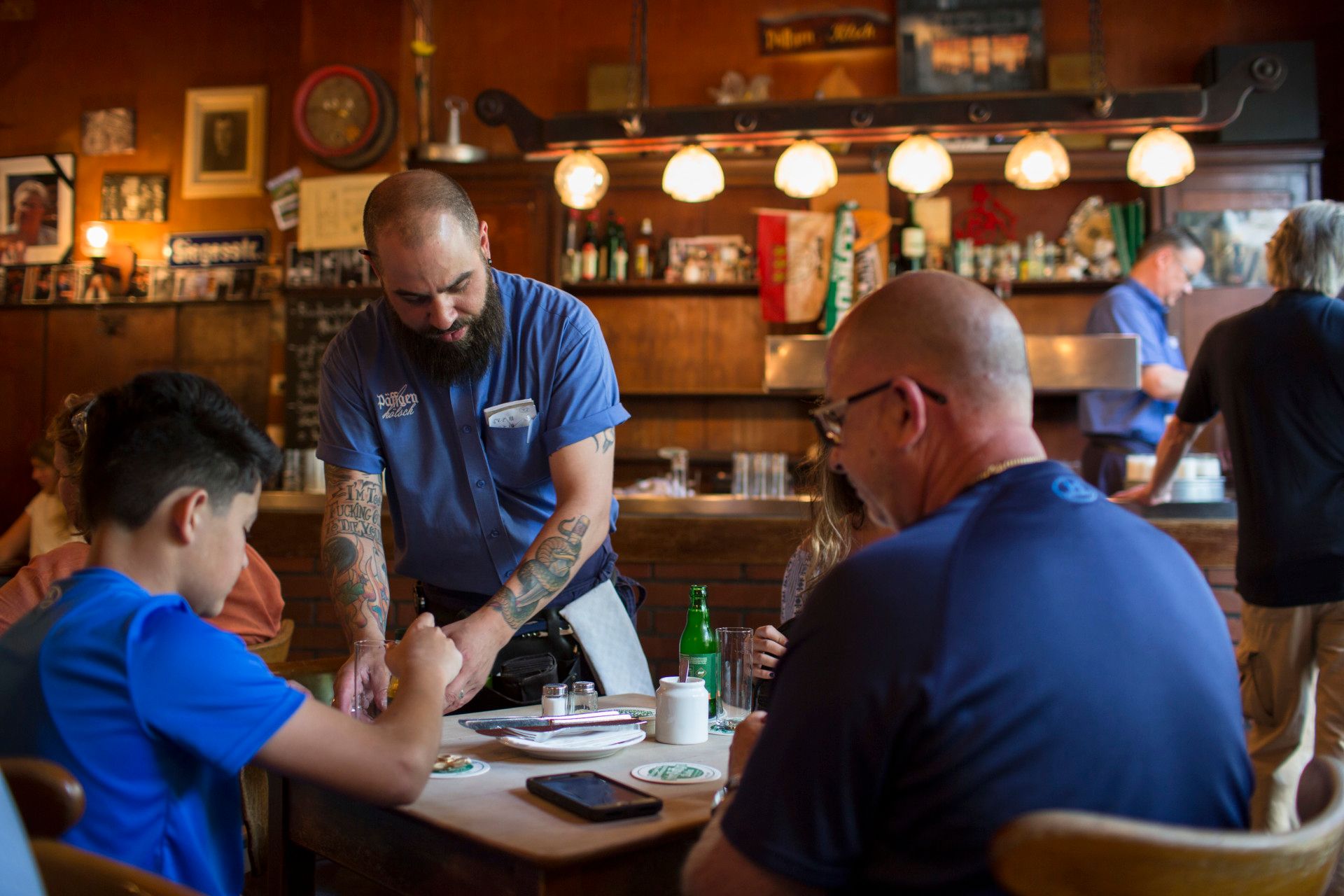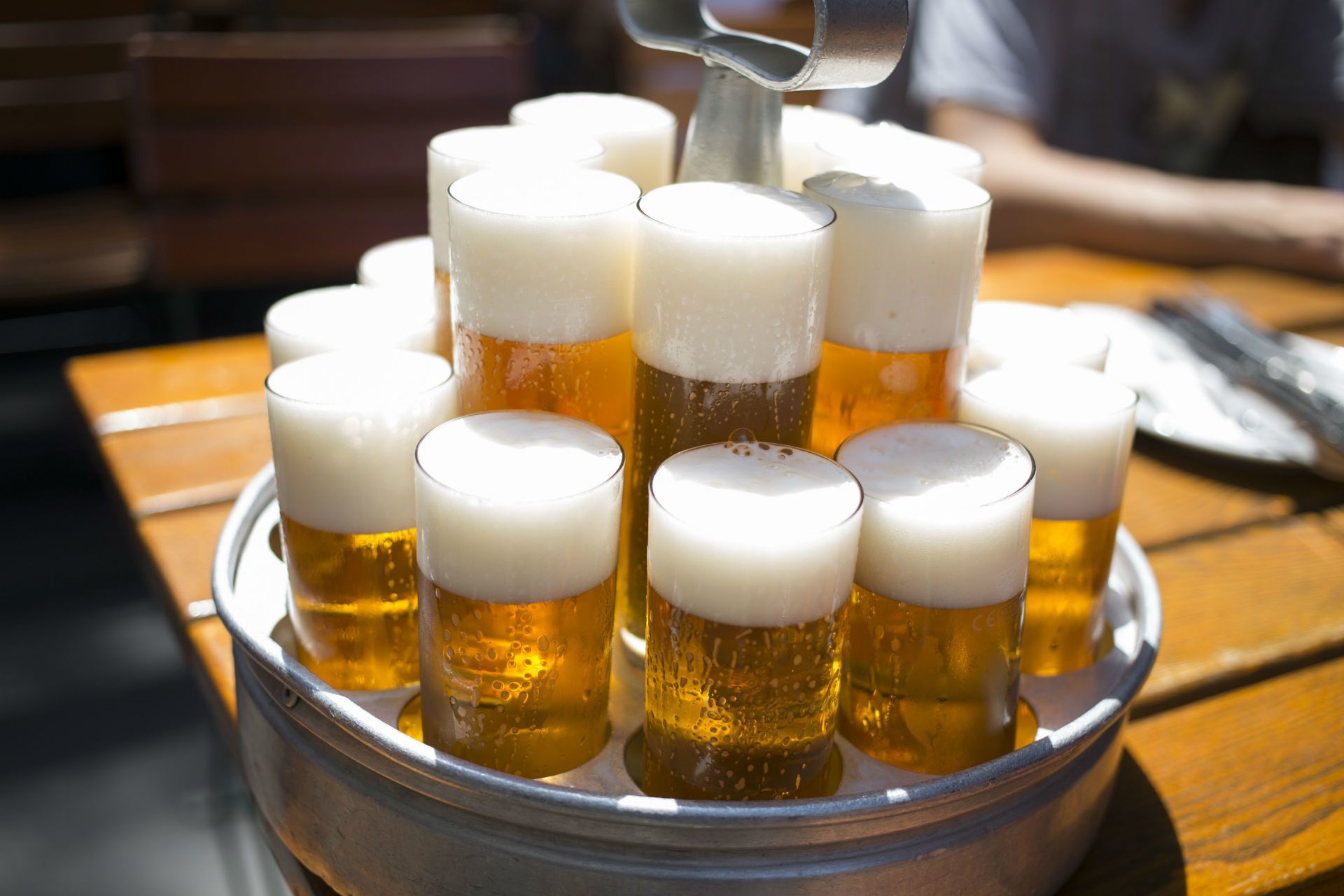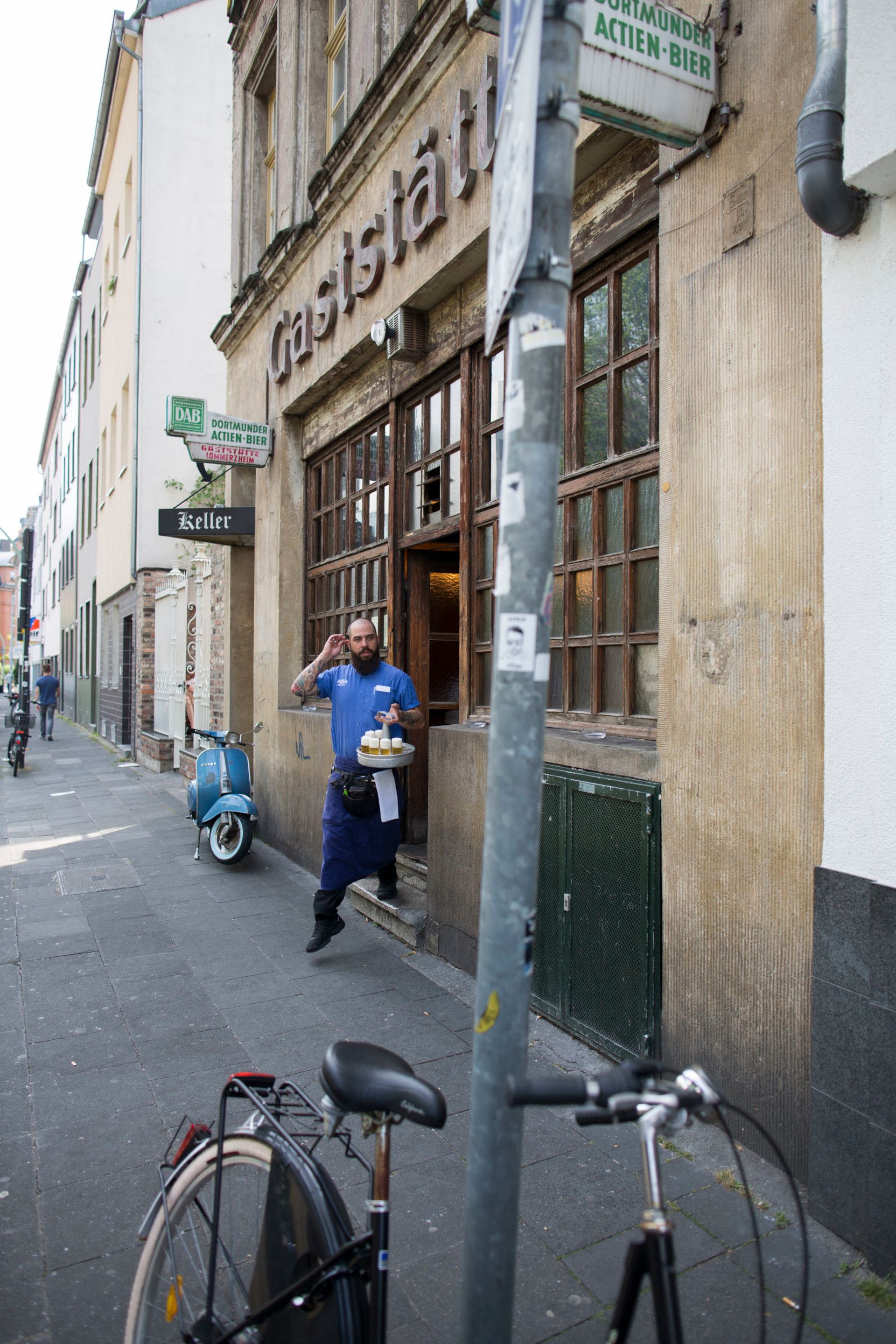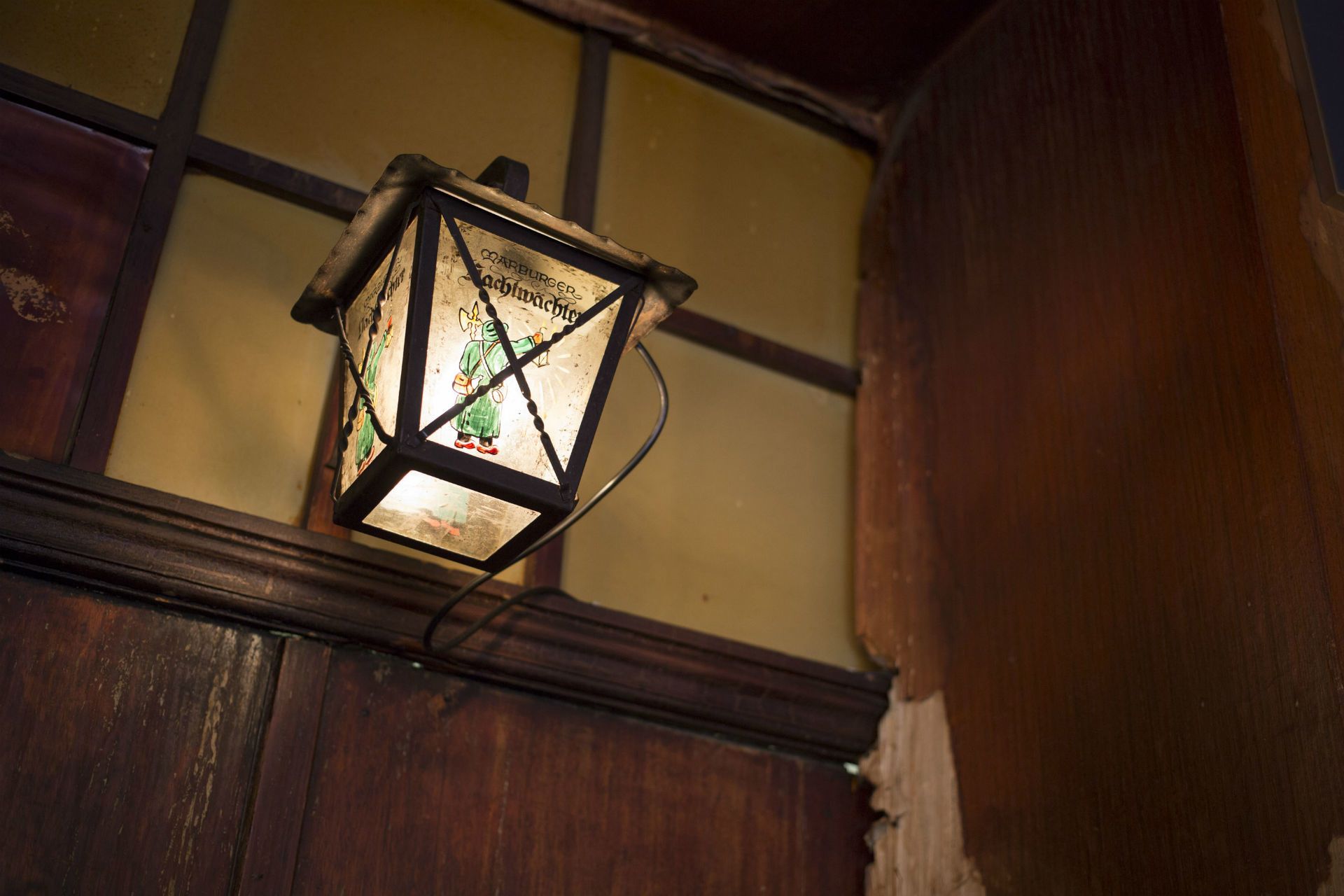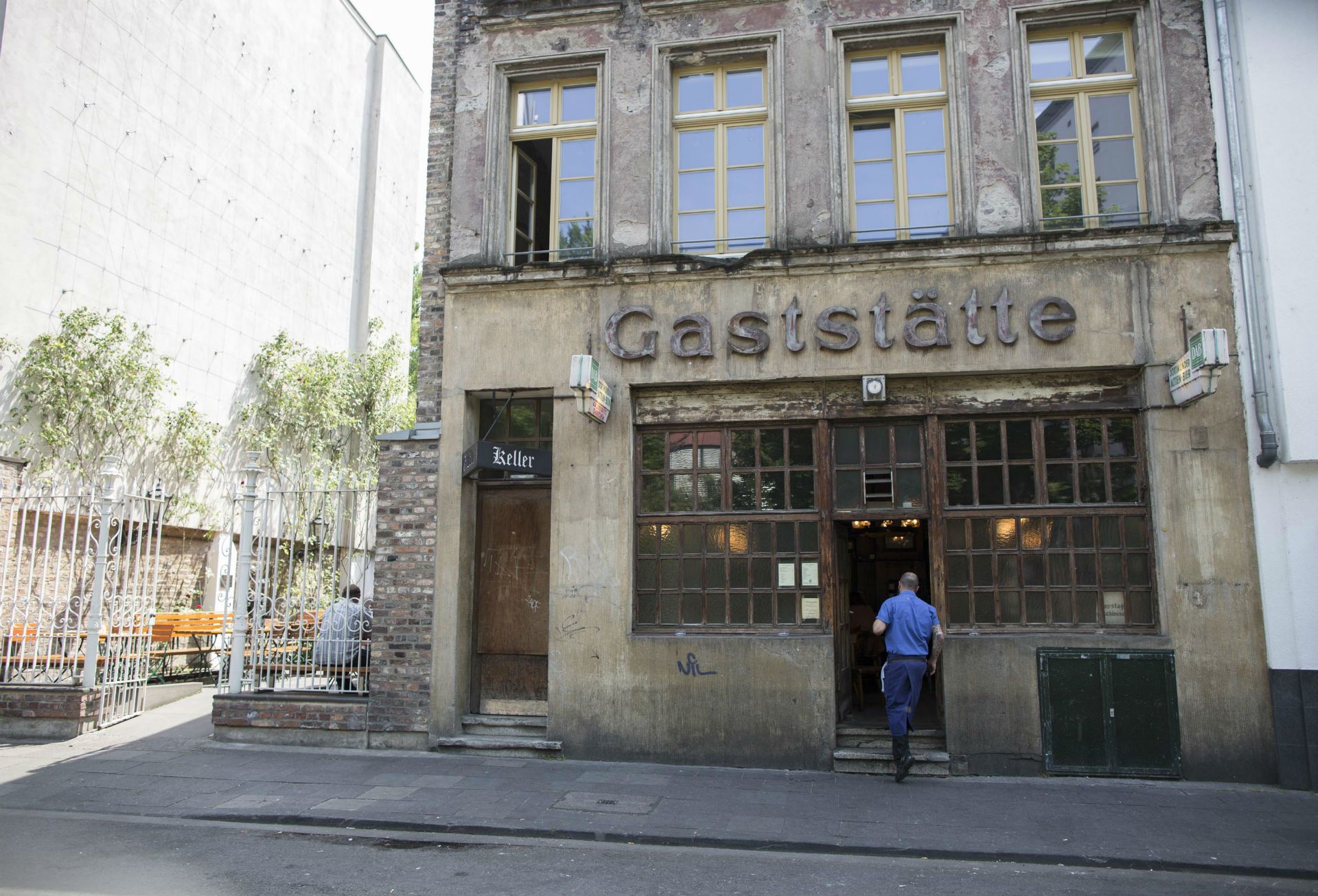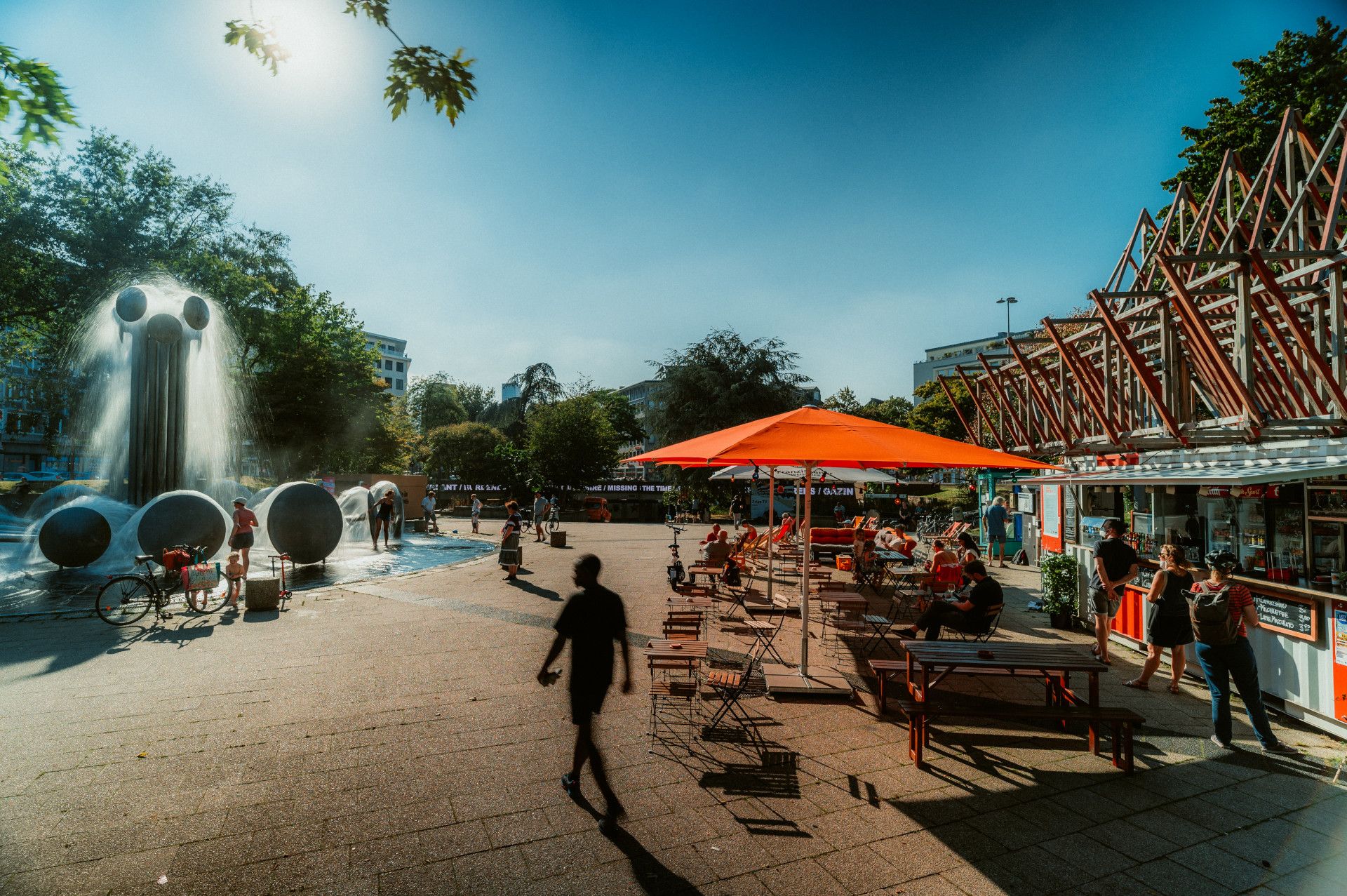To avoid any misunderstandings: Timo Eckstein has nothing against women. Certainly not. However, when it comes to his profession, "I become a chauvinist", says the bearded man, adding with a charming smile: "I'm the Köbes, women are waitresses". Got it. But Timo, who most recently worked in Cologne's cult pub Lommerzheim and now serves in the city's equally famous brewery "Zur Malzmühle", doesn't mean any offence. On the contrary. Because a man has to be somehow made for the job of Köbes. Timo explained why to DeinNRW during a visit to Cologne.
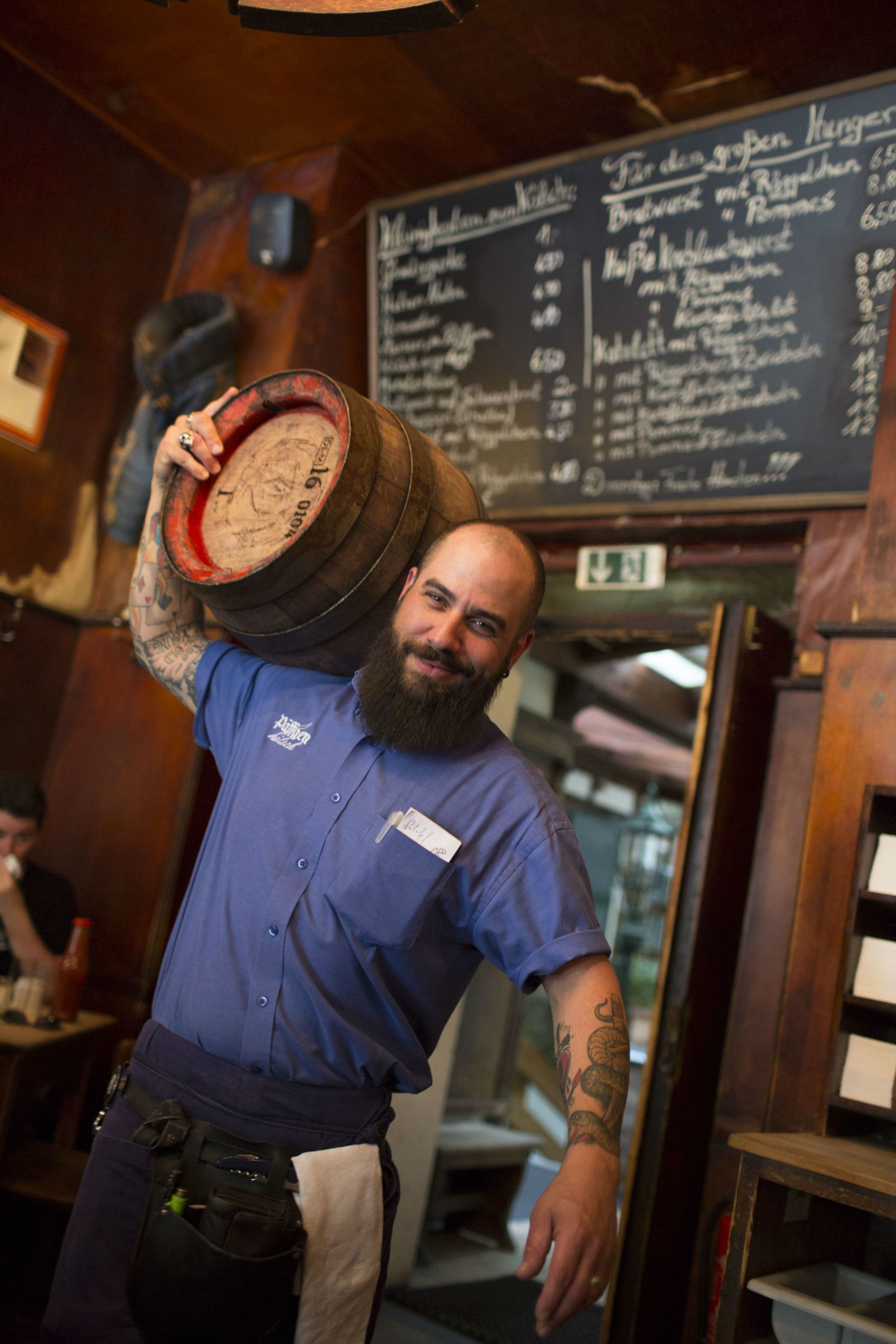
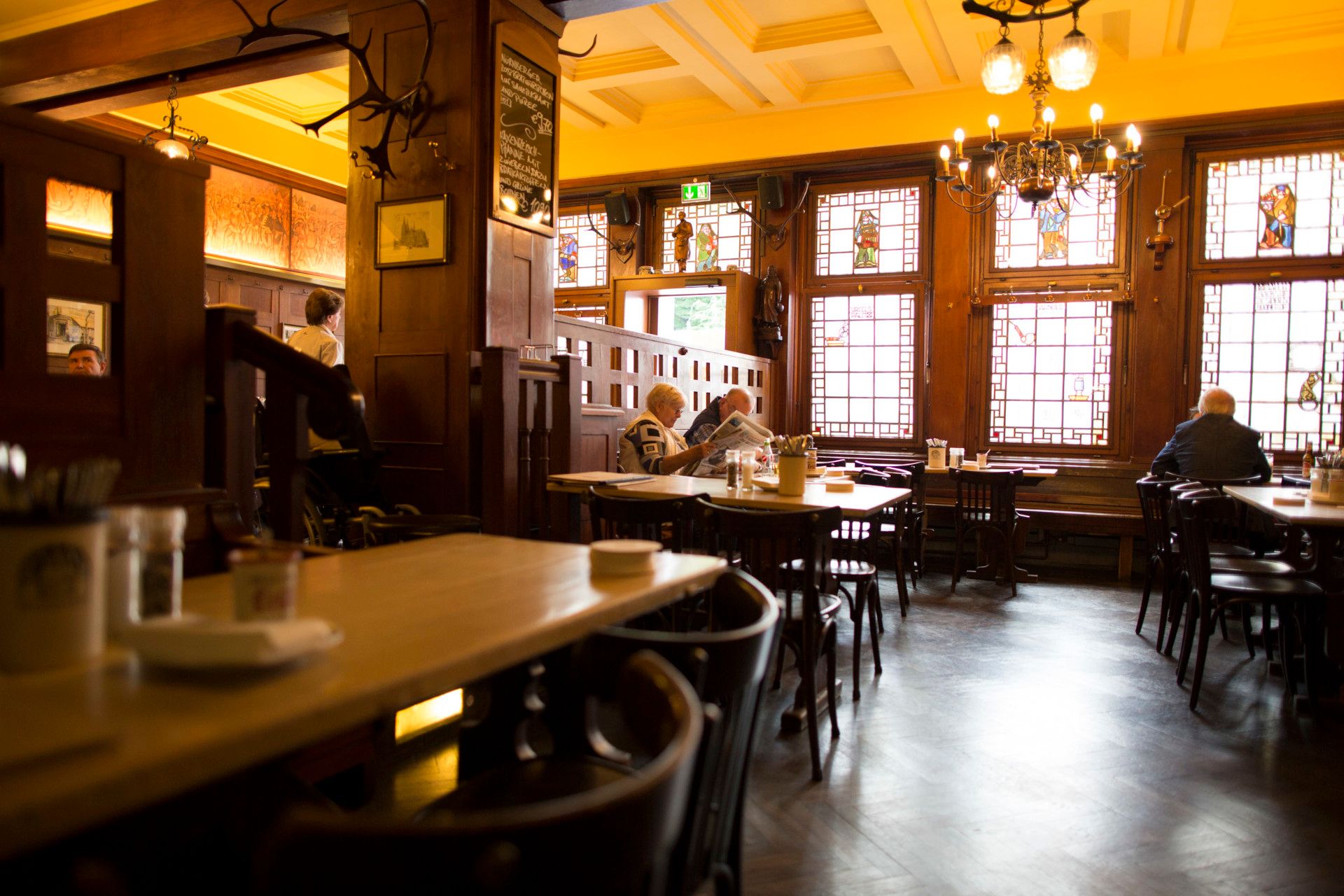
A real Cologne Köbes
Timo Eckstein
Nobody knows exactly where the name Köbes comes from anymore. The only thing that is certain is that Köbes is the Cologne form of Jakob. Otherwise, it appears somewhere in the brewery fog of the 19th century, as they say in Cologne. It may be that many brewery boys ("Brauers-Pooscht"), who worked in the brewery during the day and served in the brewery in the evening, were called Jakob. Another story tells of pilgrims who served in the brewery to supplement their travelling funds and gave the Köbes his name. No matter. In any case, the Köbes is still the secret boss in the brewery today and is not at all committed to the guests, but exclusively to the beer. But he is also an entertainer and philosopher, sometimes a little coarse, but always charming.
"Every table is a stage"
"As a Köbes, you can be brash, but never rude." This is how Timo describes his way of interacting with guests. Because "every table is a stage". People flirt and flirt, tease and laugh. And if a guest actually orders an Altbier, "then I tell him to just leave the Kölsch long enough - then it will age on its own". And Pilsner? "It's free at the swimming pool." Timo is never at a loss for a silly remark. "I just step on people's toes," says the young man with a thick black beard and a winning laugh.
In Cologne, where Timo has been at home for more than 30 years and naturally also likes to celebrate carnival with the Nippeser Lappepirate, there's Kölsch, nothing else. However, it has to be cleanly tapped and fresh, which is very important to the self-respecting Köbes. Timo, whose parents owned a pub on Hansaring in Cologne for many years and who was therefore "somehow born into the catering trade", also makes no compromises when it comes to tapping. After all, the guest has a right to expect that the glass is actually filled up to the serving line (mind you, the Kölsch bar is not a calibration line) and has plenty of foam. "A beer is only cleanly tapped," Timo explains to the layman, "if it draws a good curtain in the glass." And every beer needs foam, regardless of whether it is top or bottom-fermented.
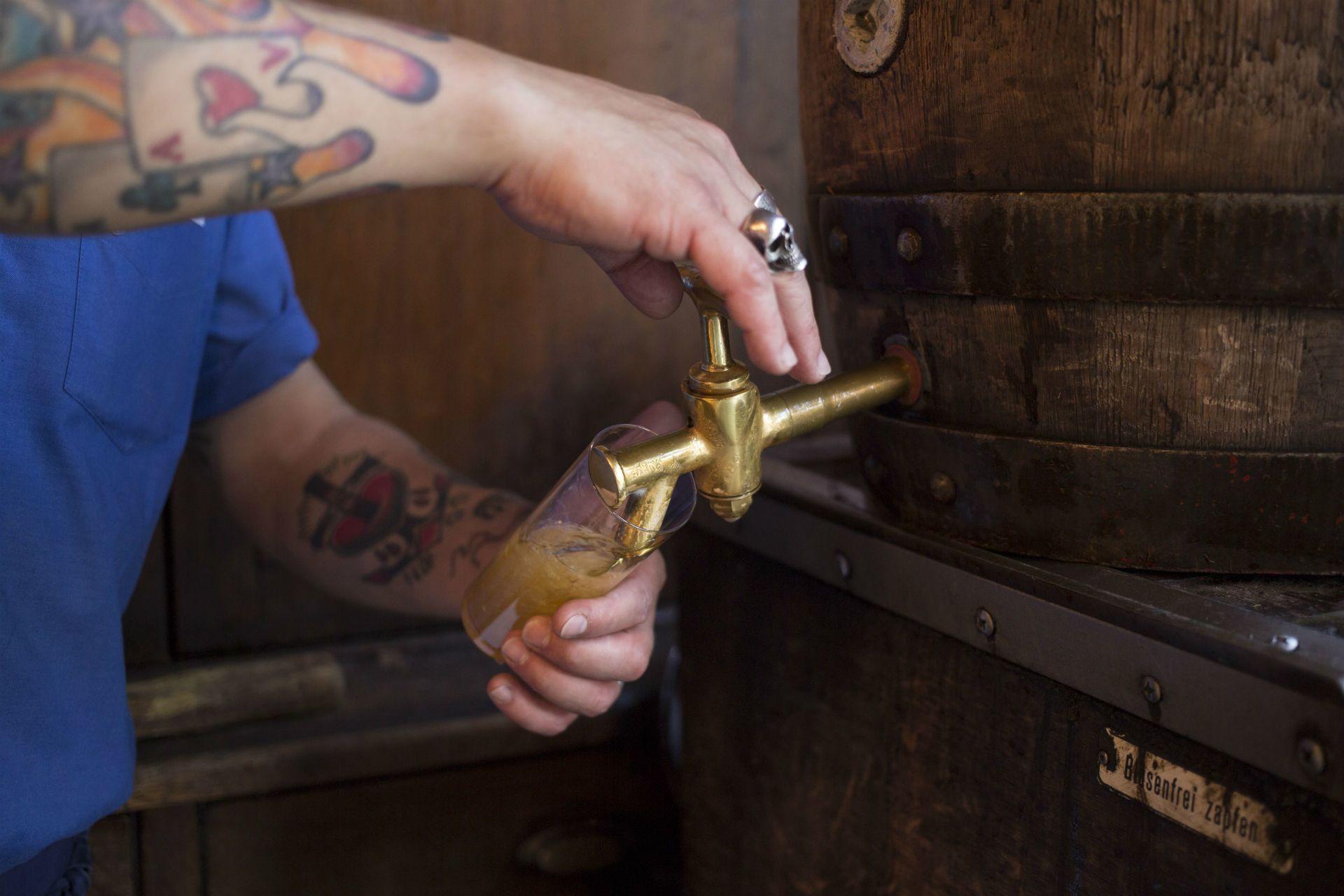
In typical Cologne pubs and breweries such as the Lommerzheim in Cologne-Deutz, every Köbes must of course be able to tap. Above all, however, he needs assertiveness. Because even before the most Kölsch of all Kölsch pubs opens, "crowds of people form in front of the door, just like in the summer sales".
It can happen that the Köbes - easily recognisable by his long blue apron and leather wallet - has to lug a 50-kilo wooden barrel to the front of the taproom and tap it every 20 minutes. In other words, 31.5 litres of Kölsch every 20 minutes: that's exactly how much the Dicke Bertha from the Päffgen brewery, which continues a long tradition in Lommerzheim, can hold. The brewery has been around since 1959 and was run by Hans "Lommi" Lommerzheim and his wife Annemie for 45 years. There are many anecdotes about the taciturn but quick-witted landlord. In 1999, on the occasion of the World Economic Summit, he is said to have refused a visit from the then US President Bill Clinton to his wood-panelled bar. The reason: the regulars would have had to stay outside.
The beer, which is not ordered in the brewery but brought by the Köbes until the guest puts the lid on the glass, is traditionally accompanied by a chop in the Lommerzheim. But not just any cutlet. The already legendary pork chops here weigh a whopping 700 grams and are by no means from the discounter. Everything served in the rustic taproom comes from local producers and traders. The new landlord Frank Glitscher owes this to himself and his guests. Speaking of which: "On good days, we serve up to 400 chops." At Whitsun, it was once even 1,200.
Timo's current employer is also popular with guests from all over the world: the traditional brewery Zur Malzmühle. It is the second oldest of its kind in Cologne and was originally launched over 150 years ago as a malt beer brewery. And even today, alongside Mühlen-Kölsch, malt beer is still one of the brewery's bestsellers and is still brewed at its original location in Cologne's historic city centre. Especially at weekends, people queue here to get their hands on a Kölsch or two.
As I said, being a Köbes is not an easy job. And when Timo talks about it, you can vividly imagine how the 1.75 metre tall, well-trained man makes his way through the tightly packed queues of guests. And why men are waiters and women are waitresses ... "I'm actually 10 centimetres too short for the job myself," the former ice hockey player quickly adds. So would he rather do something else? "Absolutely not. My job goes straight to my heart."
"My job goes straight to the heart."
In his free time, when he's not riding his Harley through Nippes with his mates, Timo can often be found in the brewery. "Em Golde Kappes" is where he likes to chat with his mates. Even as a child, he often went with his parents to the traditional pub, where you can still see a confessional. This is where the Köbes used to be handed his "Kranz" and the bill was settled before he went into the taproom. Today, the bill is settled using vouchers or "Märkchen". Then as now, the guest always pays at the end. And in the brewery:
"A lid is a matter of honour".
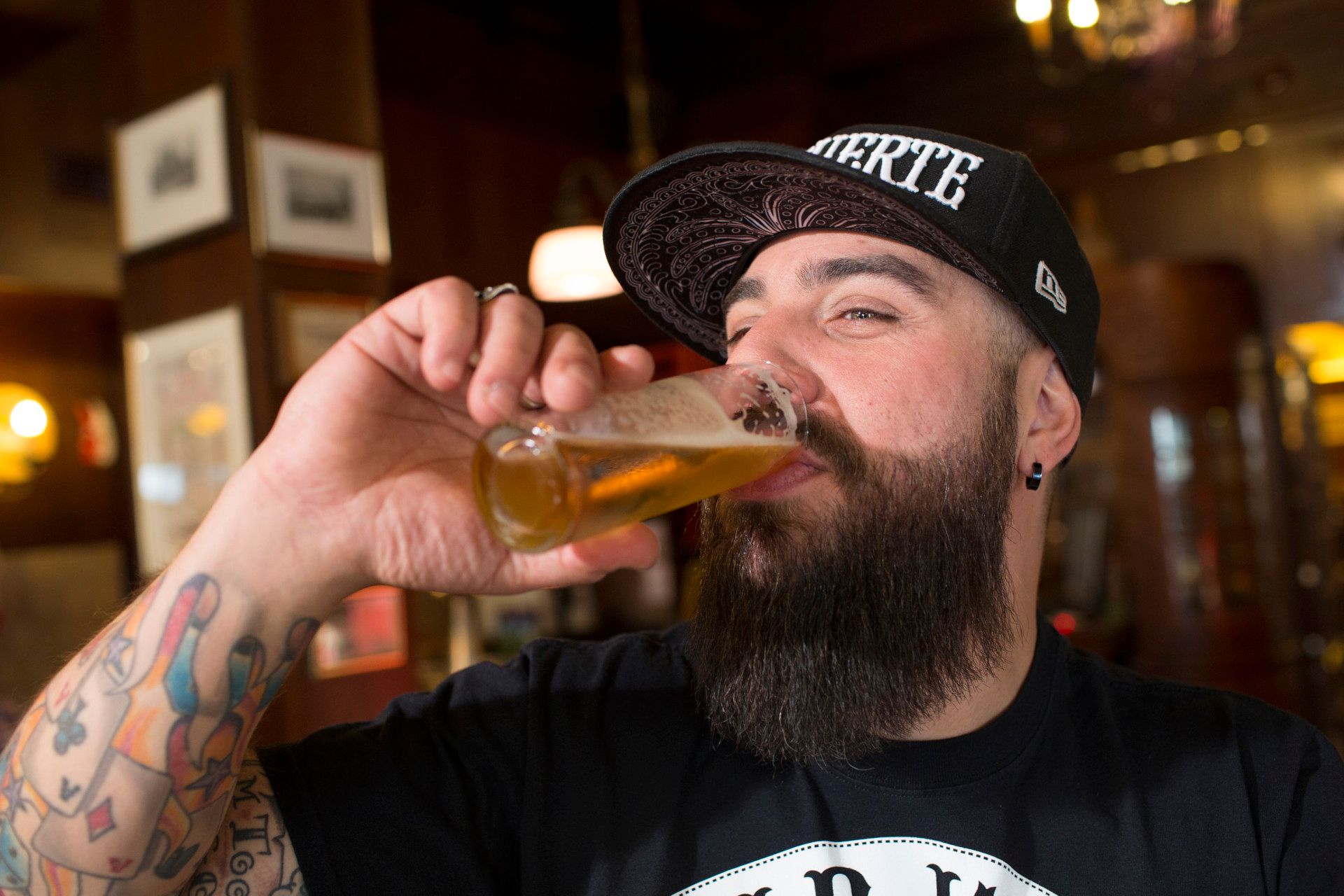
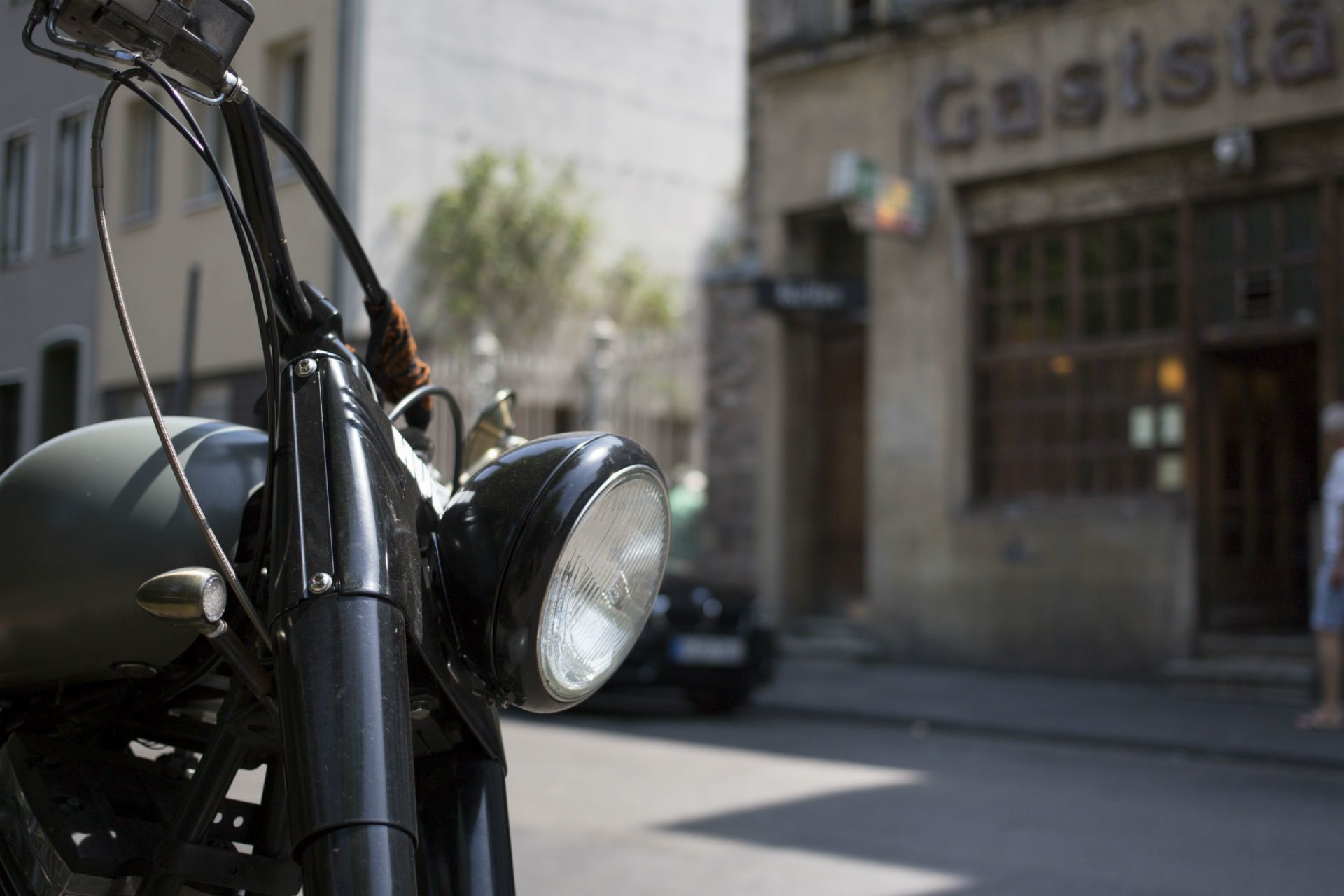
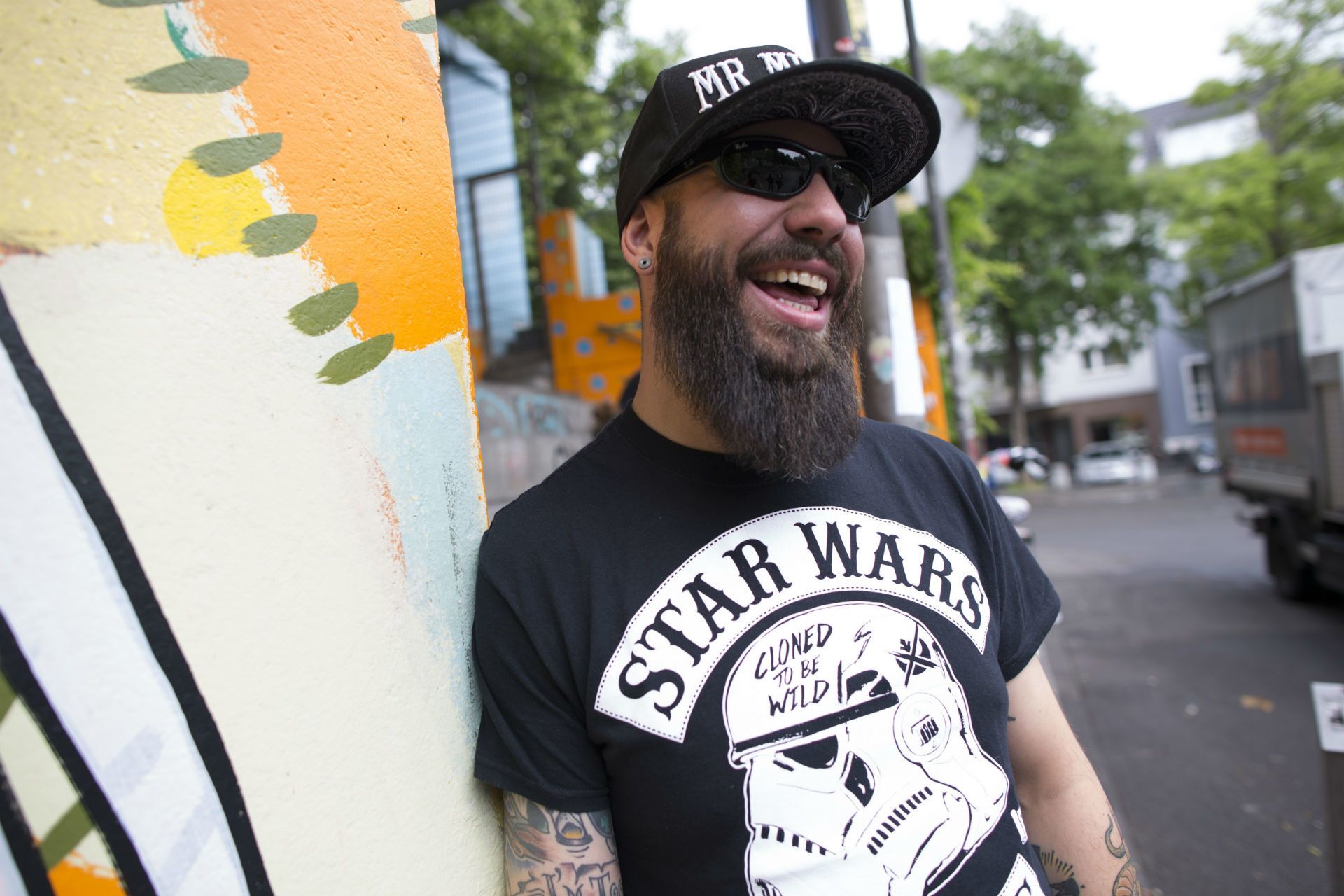
"Saturdays were always family time here at Golde Kappes," Timo remembers his childhood. "First we went shopping, then we had a Strammen Max, a Kölsch for my mum and a lemonade for me, and then we went shopping again." His father, once a publican himself, loved to tell him stories from his home town. Many of them, such as the story of the Archbishop of Westerburg and the Battle of Worringen in 1288, have stayed with his son to this day. The 38-year-old, who is almost unrecognisable on his day off in his beige skater trousers, fleece jacket, baseball cap and dark sunglasses, is attached to his city. And even more so to his neighbourhood. "After all, Cologne is just an amalgamation of many small villages." And when Timo walks through the streets with the many new graffiti and pubs today, there is always time to chat. Because Timo knows the people in Nippes, and they know him.
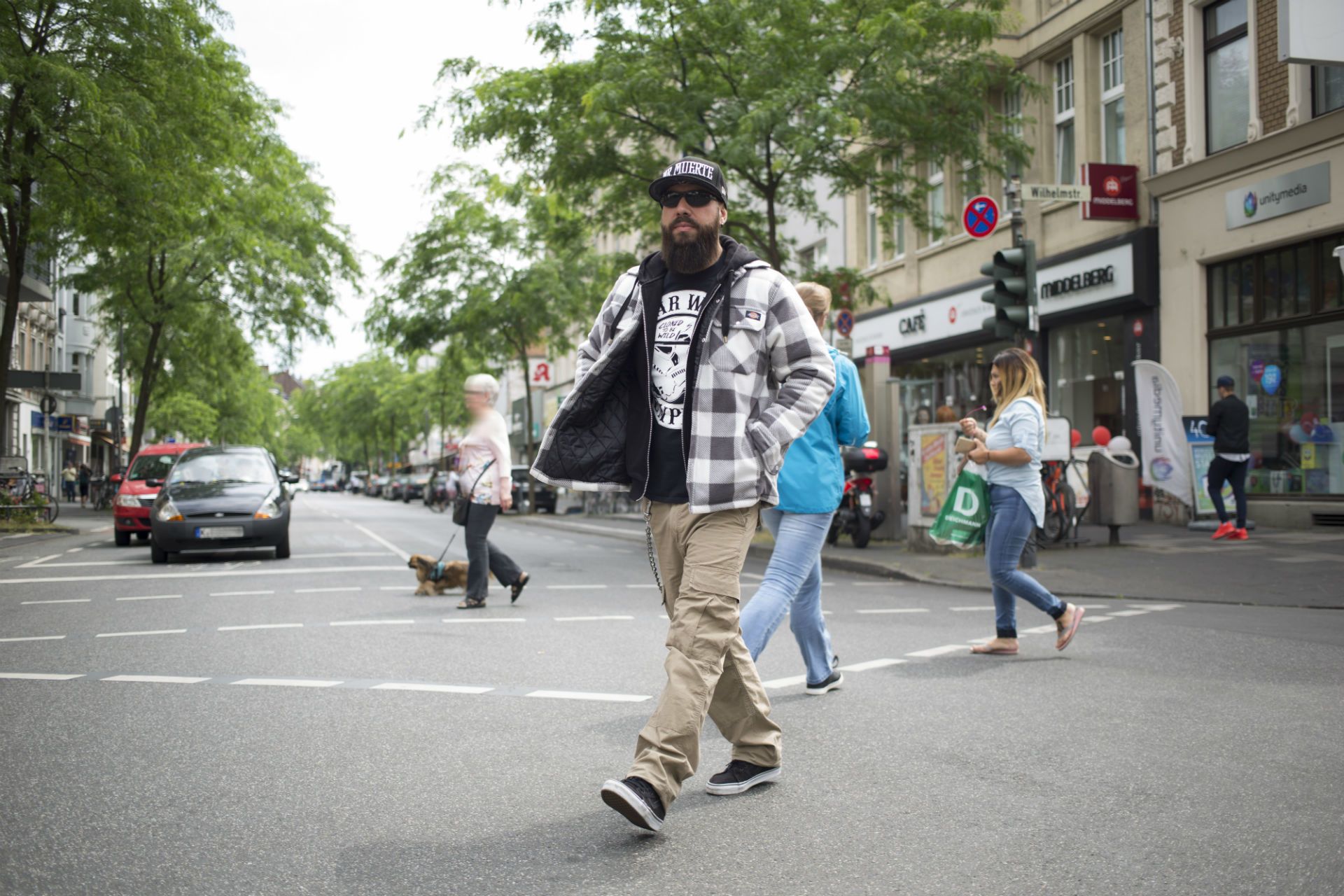
Timo also sees his city label ("Trois Rois"), which he founded a few years ago together with a graphic designer friend, as a reminiscence of "his Cologne". The name "Trois Rois" is of course derived from the three holy kings, who are very important to the people of Cologne. But it also picks up on the influence of the French. "I still say trottoir, for example," says Timo. The names of districts such as Nippes, Deutz, Ehrenfeld and Kalk are now emblazoned on T-shirts, caps and mugs, including the old postcode 5000 and a small skull and crossbones, just like the inventor wears on his finger. The items sell well in the small, trendy shops that are now back in Nippes. Because like Timo himself, most people in Cologne are somehow local patriots. "I would even say," says the 38-year-old and has to laugh a little himself, "that Cologne is the city that sells the most devotional items to its own people." Because even "if Cologne is no longer really beautiful. I love this city."
Always along the Rhine
Three questions for Timo Eckstein
Timo, you have 48 hours of free time. What would you definitely do with this time in NRW?
Timo: "Definitely ride a motorbike. That's the best thing of all: Helmet on, on the Harley and then riding around with the lads."
Which place in NRW did you recently rediscover for yourself?
Timo: "Zeche Ewald in Herten. There was a motorbike event there recently. It was my first time there. I really liked the old industrial backdrop straight away!"
Your personal favourite place in NRW?
Timo: "The Rhine! I always enjoy sitting somewhere on the Rhine or going for a walk there. It's most beautiful when the sun slowly sets and you look out over the water from one of the many bridges, with the silhouette of Cologne shimmering in the background. There's something mystical about it."
